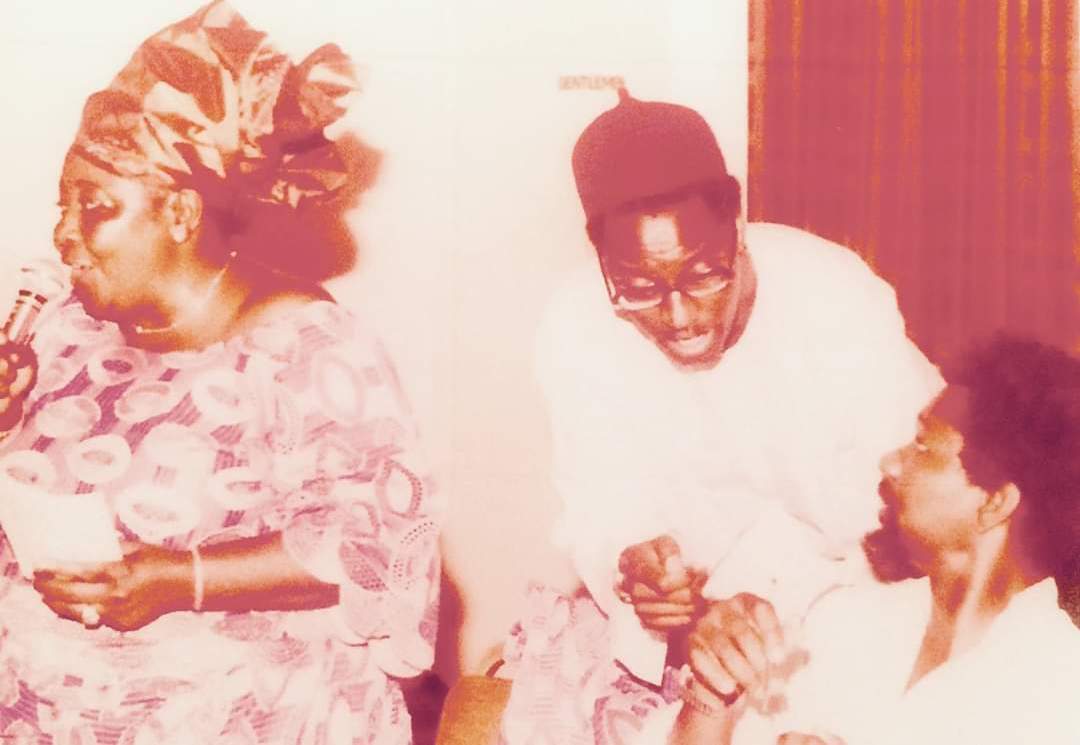Today, populism is a dirty word across the world. To pour mud on it is an ideologically chic practice. It is being implicated in rabble rousing, hysteria and what doesn’t go beyond the surface.
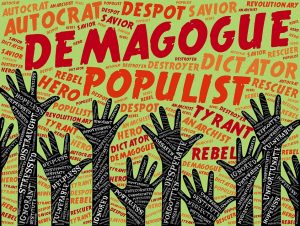
Bad image all over
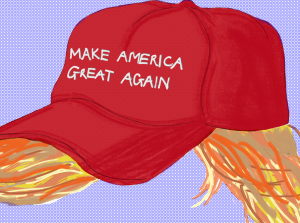
Uhmmm!
That is not totally new. Even in Nigeria, it has always been like that. Some of Nigeria’s best and brightest have said that many, many years ago before it became the current fad.
Long before he relocated to Oxford, the late Prof AbdulRaufu Mustapha wrote a paper for the Marx and Africa Conference that took place at Ahmadu Bello University, Zaria where he taught Political Science. One of the things he said in the paper titled, “The Relevance of the NEPU-PRP Heritage to the Nigerian Revolution”, is the weakness of populism and the tendency to vulnerability when in collision with stronger ideologies. In the Chapter “Resilience and Resurgence, 1978 – 1995” in the largely stillborn book The Populist Factor in Nigerian Politics, one of the authors posed the question of the diffuseness of the concept of the people employed by the PRP. The people are the salt of the earth, said the PRP but by which it homogenized the masses, (peasants and the urban poor) with rich traders, traditional rulers, technocrats and just about everyone. What sort of revolution could the PRP enact with this concept of ‘the people’?
The last example must be what Prof Attahiru Jega wrote when he accepted to write the Foreword to the book. Jega wrote, inter alia:“To a populist, populism is the best brand of politics there could ever be. It is based on the mobilisation of popular aspirations and on the promise of an alternative political dispensation rooted in the needs and desires of the masses or “the people”. … It is assumed that once oppression and injustice are blocked, things would more or less fall rightly into place. …Critics of populism do not disagree with populists on the need to deal with oppression and injustice. They, however, abhor the opportunism that seems intrinsic to populist politics. They question the “scientificity” of political methods and tactics employed by populists”.
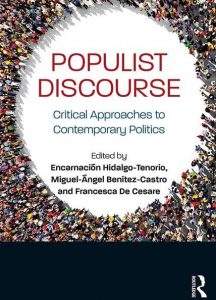
One of the most recent books on the controversy
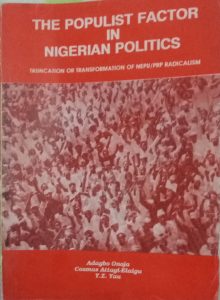
Do we solve the problem by insisting on ‘radical populism’?
So, even in Nigeria has always been a subject of sobering reprimand long before the current assault globally. However, these were not things that people like Soyinka, Chinua Achebe, Bala Usman and other activists of the PRP in the Second Republic did not know of. Hajiya Gambo Sawaba did not join the PRP in the Second Republic but that was not because she had conceptual disagreement with populism. Rather, she named two persons whom she argued were NPN sponsored spies to disorganize the party. She turned out to be nearly correct on point of interpretation, not on point of facts.
This is made more complicated by the position of leading cadres such as the late Eskor Toyo who said the PRP was the party every progressive or leftist should join in the circumstance of the Second Republic. Even when he found himself in the Imoudu faction of the party after the great split, he still maintained the position, with slight amendment of the class character of the other faction headed by Mallam Aminu Kano.
Against this background, is it not right to say that, to the extent that all these intellectually and organizationally sure footed individuals – Eskor Toyo, Soyinka, Bala Usman, Michael Imoudu and even now Attahiru Jega who is head of a crew repackaging the surviving PRP – were problematising the criticisms of populism of which they were aware and, in fact, saying, well, the critics are doing so from how they see it, not the way it is? That is, saying that populism too is contingent in meaning!
There must be something strategic if that inference were to be contextually correct. Populism is being used around the world today for exclusionary practices directed at immigrants, races and the materially challenged but just as it has been used and can be used for inclusive practices, depending on which actor is doing the mobilisation.
For instance, could the anti-colonial struggle have been productive if it was a few members of the elite speaking in a language they alone understood? Can any realists or determinists successfully rouse the folks today in most parts of Africa without a populist tactical doctrine and practice? Is politics even different or possible without populism? Is it the legacy of Nazism, Fascism and National Socialism that has united people against populism or the very meaning of the word?
Questions that this picture compels attention to in the Nigerian context!

